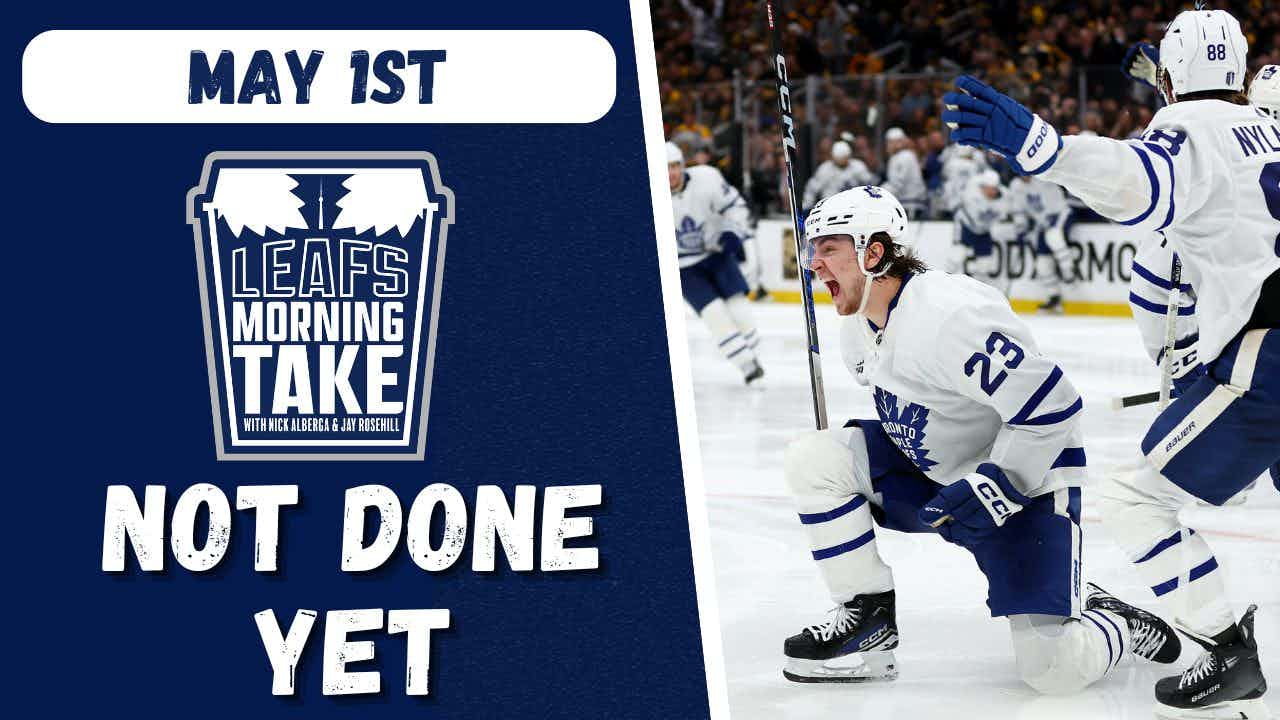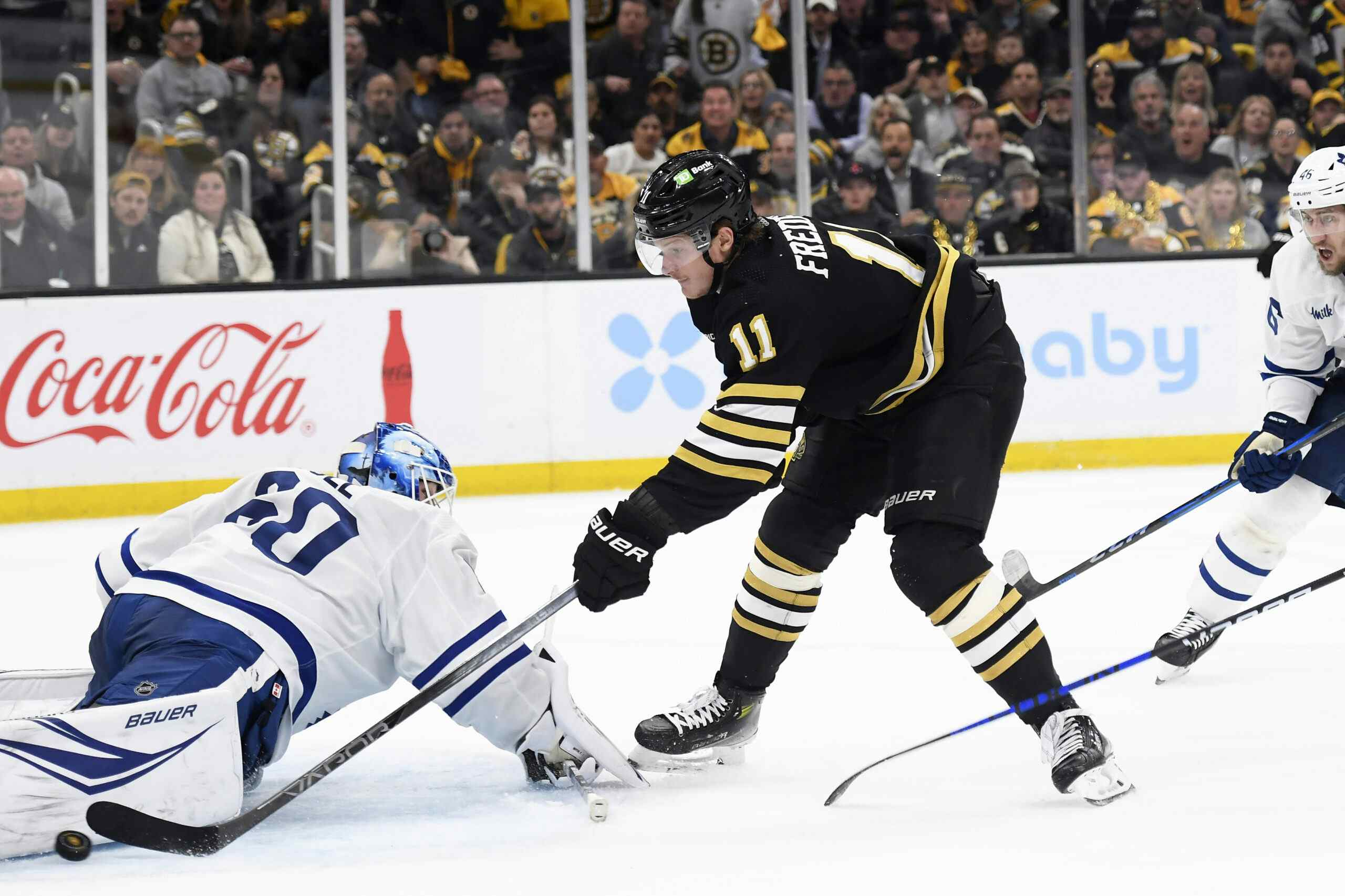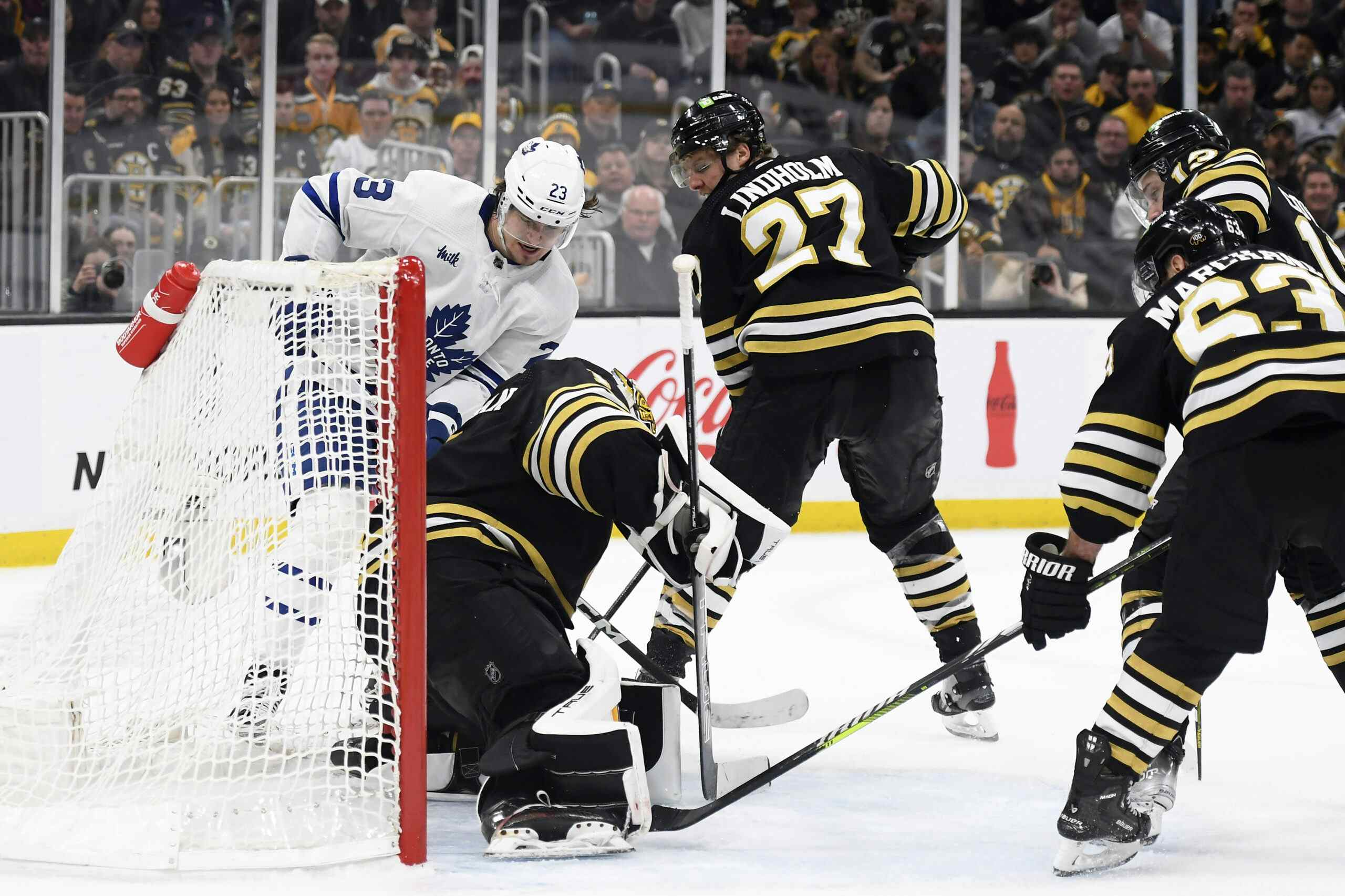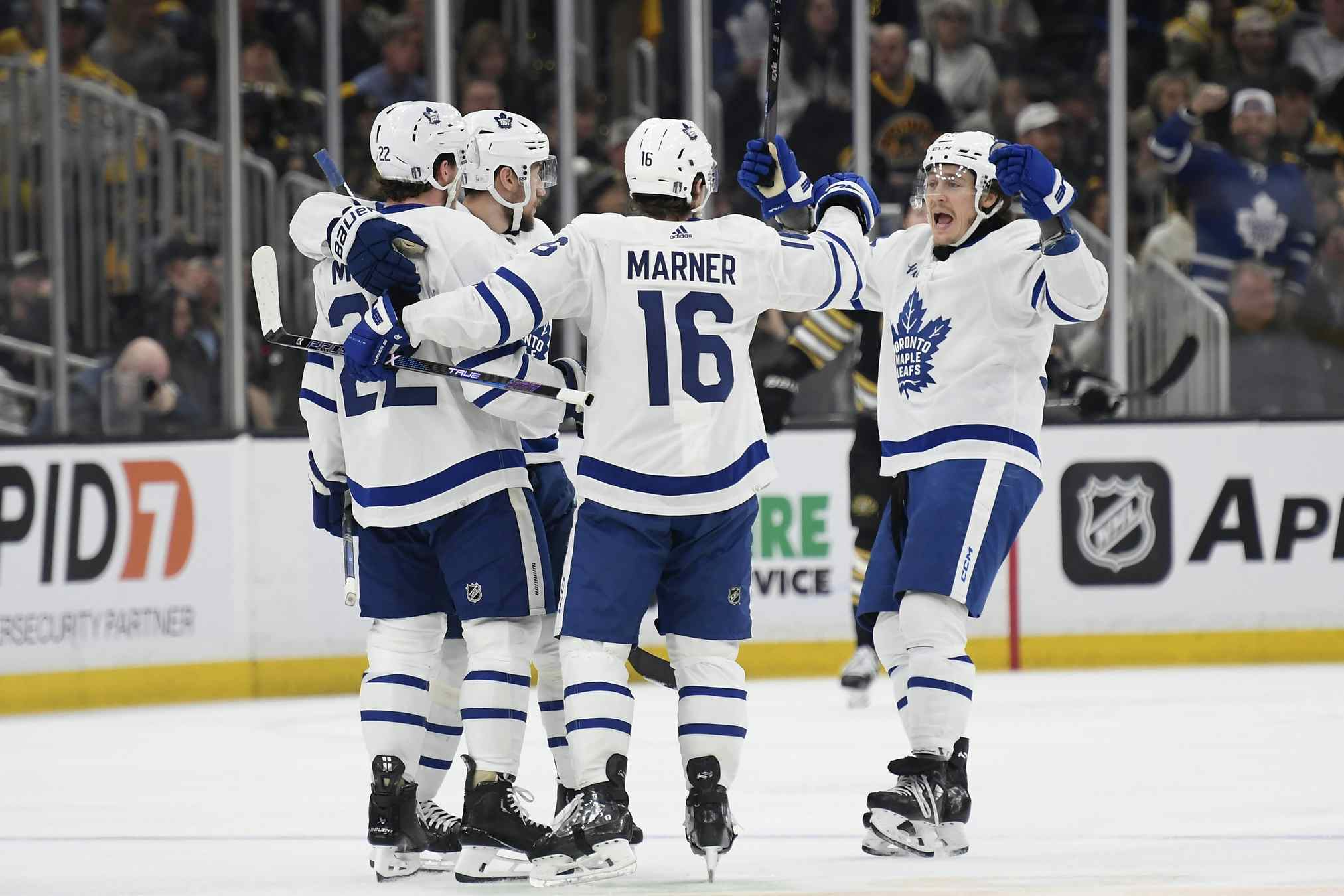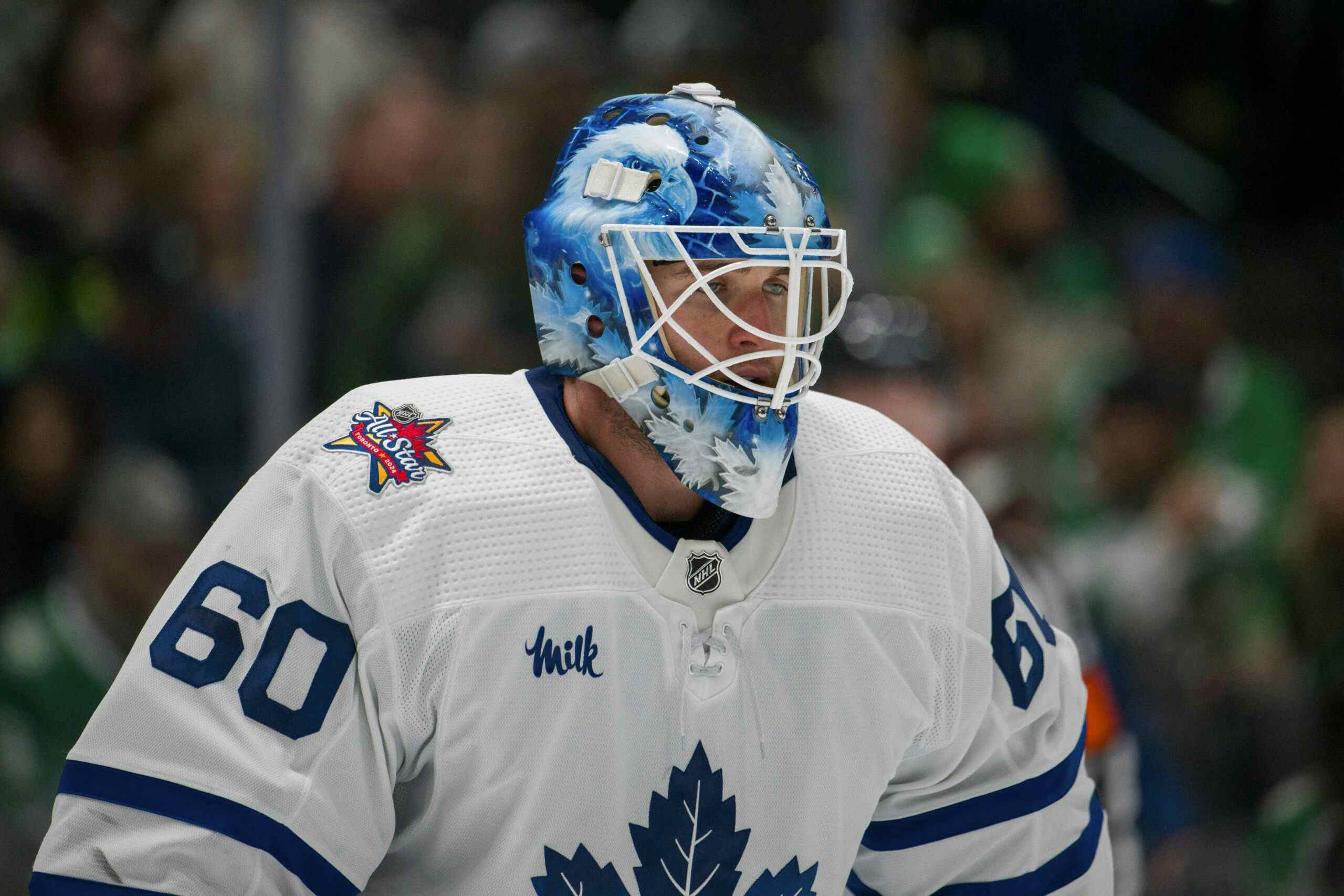A Farewell To A Captain

Photo Credit: John Sokolowski/USA TODAY SPORTS (Cropped From Original)
It was just like any other Sunday. Well, sort of. For whatever reason, I had woken up brighter and earlier than usual, and so had a bunch of my friends. Maybe it was meant to be, because on January 31st, 2010, the hockey world was flipped upside down by the Toronto Maple Leafs.
Bit by bit, Dreger had begun to unfurl the details. About two hours later, he came back to us with the bombshell; Dion Phaneuf was joining the Toronto Maple Leafs.
Dion Phaneuf, the bruiser with a cannon from the point. Dion Phaneuf, the cornerstone defenceman of the Calgary Flames. Dion Phaneuf, seen not long prior as one of the best young players on the planet after the Crosby/Ovechkin/Malkin trio. Dion Phaneuf, the man thought to be untouchable until that very moment. Months after acquiring 21-year-old sniper Phil Kessel, Dion Phaneuf was a member of the Leafs. It didn’t matter what the return was at that point; the Leafs had picked up a second huge piece to pull them out of the John Ferguson Jr. era and into Brian Burke’s wild ride.
When details came out of the full extent of the deal, which also sent over Keith Aulie and Frederik Sjostrom while Matt Stajan, Ian White, Jamal Mayers, and Niklas Hagman went the other way, people were just a step below doing cartwheels in celebration. A few were upset to lose White but thought that Aulie would make up that gap. Besides, it was Dion Phaneuf. It was worth it.
Who would have thought that Stajan would be the last person in that group to remain with their team. Go figure.
The pressure to succeed was on Phaneuf from the get-go. The Leafs were in the midst of their first season with Kessel, meaning Boston was waiting to find out who they were going to draft. In that respect, the Leafs needed two things out of their man; results, and distraction.
“Look at how he thinks before answering a question”, they’d say. “Look at how he sticks up for his teammates. Did you know he controls the music in the locker room?” Phaneuf wanted to make an impact with his unexpectedly bottom-feeding team, and management wanted to make sure fans knew it. The Leafs won two of their last five games before the Olympic break, but in that few weeks gap, they made sure that he was familiar with the systems, familiar with his teammates, and ready to be sold as the man to right the ship.
Then, possibly the worst thing for him happened; he did. Sort of. Technically, Jean-Sebastien Giguere going for one last wild ride with the support of Jonas Gustavsson was more crucial to the push, but whatever the case was, the team went 11-7-3 after the break; including a stretch where they won 8 of 10. The fans thought it was him who righted the ship, the team supported the point, and before the offseason, he was named Captain of the Toronto Maple Leafs, after the team going two full seasons without.
It was at that point where the slowly-growing hill found a way to constantly stay ahead of him.
Dion, for all his best efforts, was never able to repeat the success he had in his first years in Calgary. It didn’t help that the Leafs never quite invested in a true defensive partner for him, rather flanking him with their weaker talent to “bring them up a peg”. They stuffed him against the toughest lines, for the longest shifts, with the lamest support, and it never quite worked out the way they wanted it to.
But one of the great things about Dion Phaneuf is how he can stay calm, cool, collected, and still push towards the main goal. He never complained about his situation, despite being a headlining piece in what turned out to be one of the biggest cases of short-sighted rebuilding methodology that we’ve ever seen.
Leafs management was a tricky one to be around in much of Dion’s time here. The team’s focus was always on “NHL-readiness” over upside. It never quite worked out; grabbing 25-to-27-year-olds is great, but it doesn’t matter how young a player is if what you see then is what you’re getting forever. Time and time again, support players would be added to the organization that could impact the team immediately. Some of them weren’t very good at all, and quite often Phaneuf got stiffed with those guys as partners.
The results were mixed and often disappointing but never did he complain about it.
We all know how the story for the Leafs goes in the years ahead. Despite spirits being occasionally lifted by moments like the one above, the team stayed perennially bad as their “youth system” by and large plateaued before they made it up. But he never stopped trying; he hit, he fought, he shot, he blocked, he passed, he talked, and he led the Leafs through all the trouble; one day reaping the rewards of being the captain of the first playoff-bound Leafs team in nearly a decade. In typical “no opportunity to succeed” fashion, he played over 25 minutes a game, and most of them were with Ryan O’Byrne.
Through all of this, he largely remained an exemplary presence outside of games. Ex-teammates have praised his attitude “in the room”; for example, Clarke MacArthur’s glowing review of him was one of the reasons that the Senators pursued him to begin with. He stayed as active as anybody in practices. More importantly, he made sure the Leafs were as involved as could be with the community, leading the charge at any organized team event and donating a luxury box, out of pocket, to the Hospital for Sick Children during almost every night of his tenure, only to challenge his teammates to do the same at least once a year.
Even in this rock-bottom year, Phaneuf kept his nose to the grindstone and did his job like a leader. Mike Babcock changed his utilization, part of which involved him playing fewer minutes. He accepted it whole-heartedly and improved under the role. He was asked to keep a competitive instinct despite the team’s long-shot odds at success; he did, and the Leafs did too. Even as bottom feeders for the full year, the team appears to be giving more of an effort into their games, losses included, than you’d expect from a team in their position. He did his best to make the rocky transition an enjoyable one without players learning bad habits from apathy. His efforts, while not flawless, were valiant.
Despite turmoil, he never asked for a trade; in fact, one of the only reasons this trade went down to begin with was because he figured that there was no way that the Leafs would trade their captain to the Senators, and as such marked them as an “allowed” team in his Limited No-Trade Clause.
I’m sure the Leafs would have loved to have kept a guy like Dion around for the next few years. He’s done a lot of growing up in this city and become one of the better citizens and mentors of the game over the years. But the structure of the game is changing; fewer and fewer teams are investing in “top flight” defencemen outside of the absolute elite. It’s not about having the wherewithal to play 25-26 solid minutes; it’s about building a team of well-rounded, younger-blooded, cost efficient guys who can put in 20-21. Unfortunately, while Phaneuf’s contract was surprisingly not terrible under the old philosophy, it, combined with his age, wasn’t going to be a good fit with this younger, more modern-thinking group. With an opportunity to take all of it off of the books with 18 months, it’s no shocker that his bosses bit on the opportunity.
For his sake, I hope that the Senators find a way to integrate Phaneuf in the best way possible. They should learn from Toronto’s mistakes; let him be a good locker room guy, but don’t force him to take the place over. Play him in situations where you see fit, not every shift possible until he gets tired. Find a partner that will compliment him, not someone that you’d like to be his on-ice paid intern.
Hearing of Phaneuf’s departure today was every bit as jarring as hearing of his arrival, but I’m going to remember his time in Toronto with fondness. He was effective at his job on the ice more often than not, but even when he wasn’t he gave it his all. His teammates liked him, and while some fans were quick to the “pylon” jokes, his flashes of skill and brawns won over many and his flashes of caring and philanthropy even more so. It’s a shame that he won’t be around to see the new push through, but much like Burke brought him in to “turn the page” on the failures of the prior management group, it only makes sense that he heads out as the current group does the same.
Best of luck Dion; the weight of the world is off of your shoulders, and the microscope has been lifted too.
On second thought, the latter might take a few days. But it’ll come. Promise.
Recent articles from Jeff Veillette

